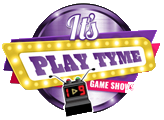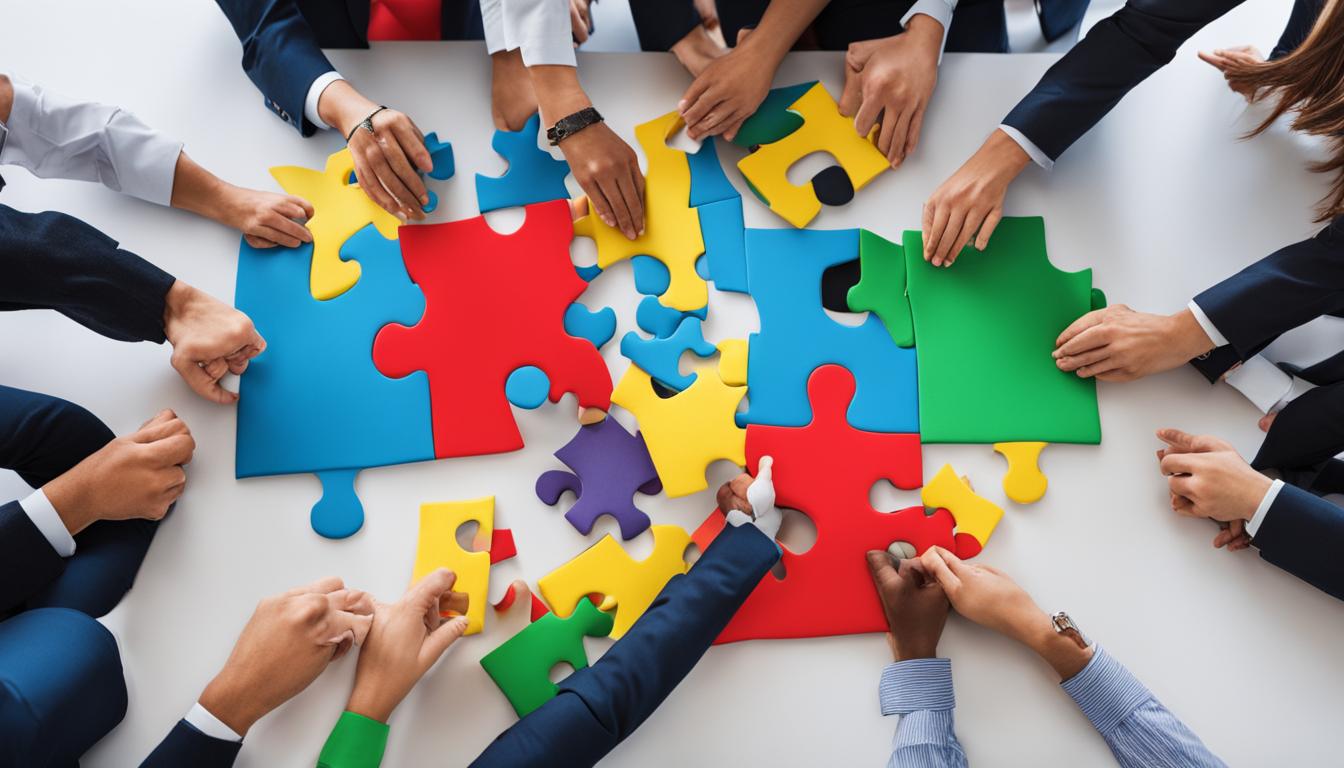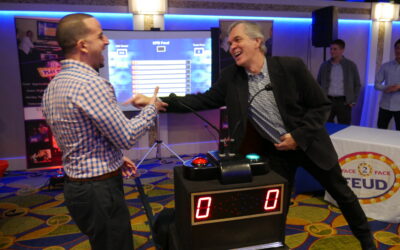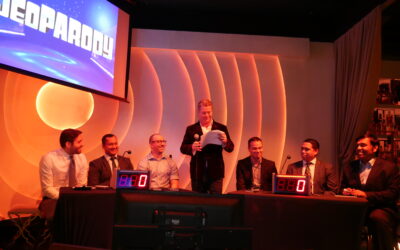Teamwork games and activities are common in corporate environments but unfortunately, they often get a bad rap.
Negative perceptions of teamwork can hinder team-building activities and prevent colleagues from working effectively together. Why is that?
There can be several reasons behind this misconception about teamwork games and activities.
Perhaps you’ve encountered a poorly planned team building activity, or maybe you feel like you don’t have the time to participate in these activities.
It is also likely that you have preconceived notions about what these activities entail.
However, it’s essential to understand that teamwork games and activities can teach valuable skills and encourage collaboration in the workplace.
By embracing these activities with a positive mindset, you can transform the way you work with your colleagues and improve overall productivity.
Why Teamwork Games & Activities Get A Bad Rap
Key Takeaways
- Teamwork games and activities often have a bad reputation that can impede team-building efforts.
- Negative perceptions of teamwork games and activities can arise from various factors such as poorly planned events and preconceived notions.
- It’s important to understand that these activities can foster valuable skills and promote collaboration among colleagues leading to heightened productivity.
Disadvantages of Teamwork Games
As with any group activity, teamwork games can have some potential disadvantages.
If not addressed, these issues can hinder the effectiveness of the team building exercise.
Here are some common problems with teamwork games and strategies for overcoming them:
1 – Lack of Engagement
One of the main complaints about team building activities is that they can be boring or unengaging.
If team members are not invested in the task, the activity can become a waste of time.
To overcome this, try to choose activities that are relevant and interesting to the team.
Consider involving the team in the planning process to ensure everyone is on board.
2 – Competition Over Cooperation
Teamwork games that involve competition can sometimes lead to an unhealthy focus on winning rather than on cooperation.
This can create tension within the team and hinder the development of effective teamwork skills.
To overcome this, choose games that require cooperation rather than competition.
Emphasize that the goal is to work together to achieve a common objective.
3 – Personality Clashes
Team building activities can sometimes expose personality clashes or conflicts within the team.
This can create tension and hinder the effectiveness of the exercise.
To overcome this, create a safe and supportive environment where team members can communicate openly and honestly.
Encourage everyone to listen actively and work to understand each other’s perspectives.
4 – Lack of Transferability
Some team building activities may not translate well to the workplace.
This can make it difficult for team members to apply the skills and lessons learned to their everyday work.
To overcome this, choose activities that have clear real-world applications.
Emphasize the importance of applying the skills learned in the activity to the workplace.
While there are potential disadvantages to teamwork games, these challenges can be overcome with careful planning and execution.
By addressing these issues, you can enhance the effectiveness of team building activities and foster a more collaborative and productive work environment.
Misconceptions About Teamwork
Teamwork is often perceived as a burdensome task that can be more trouble than it’s worth.
However, many of these perceptions are based on misconceptions and misinterpretations of what teamwork truly entails.
“Individual commitment to a group effort – that is what makes a team work, a company work, a society work, a civilization work.”
One common misconception about teamwork is that it involves sacrificing individual achievement for the sake of the group. In reality, effective teamwork values both individual contributions and collective success.
By working together towards a common goal, each member can utilize their unique strengths and skills to maximize the team’s potential.
Another negative perception of teamwork is that it can lead to groupthink, where individual creativity and critical thinking are suppressed in favor of conformity.
However, strong teamwork relies on healthy communication and the ability to challenge each other’s ideas constructively, leading to improved decision-making and problem-solving.
| Misconception | Reality |
|---|---|
| Teamwork means sacrificing individual success for the sake of the group. | Effective teamwork values both individual contributions and collective success. |
| Teamwork leads to groupthink and conformity. | Healthy communication and constructive criticism promote individual creativity and critical thinking, leading to improved decision-making. |
One final misconception is that teamwork is only relevant in a professional setting.
In reality, teamwork is a valuable skill in all facets of life, from personal relationships to community involvement.
Building strong teamwork skills can not only enhance workplace productivity, but also improve overall well-being and satisfaction.
- Teamwork is not limited to a professional setting but can be applied in personal relationships and community involvement.
By recognizing and challenging these misconceptions about teamwork, you can embrace the true value of collaboration and cooperation leading to improved performance a more positive work environment.
The Benefits of Teamwork
Despite the negative associations, teamwork games and activities have numerous benefits.
These activities can help improve the way teams interact with each other, foster communication, and enhance productivity in a professional setting.
By participating in team building exercises, team members can gain a better understanding of each other’s strengths and weaknesses, creating opportunities to leverage individual strengths to benefit the team as a whole.
Engaging in teamwork activities can also help to create a sense of camaraderie and unity between team members.
By working together to achieve a common goal, employees can develop meaningful connections that extend beyond the office.
This creates a more cohesive team that is better equipped to handle challenges and work together effectively on a long-term basis.
One way to improve teamwork through activities is to engage in problem-solving exercises.
These exercises provide opportunities for team members to work together and utilize their collective problem-solving skills to find solutions to complex problems.
By working together to overcome obstacles, team members develop stronger relationships and learn to work together towards common goals.
| Benefits of Teamwork Games | Explanation |
|---|---|
| Increased Productivity | Teams that work well together are more productive, leading to higher quality work completed in a shorter amount of time. |
| Improved Communication | Teamwork games enhance communication by providing a safe space for team members to practice sharing ideas and feedback. |
| Stronger Relationships | Participation in teamwork games creates a sense of camaraderie and fosters personal connections between team members. |
| Better Problem Solving | Team building exercises provide opportunities for team members to work together and utilize their collective problem-solving skills to find solutions to complex problems. |
Overall, it is clear that engaging in teamwork games and activities can have significant benefits for both individual team members and the team as a whole.
By improving communication, fostering strong relationships, team building exercises can help you and your team be more productive and achieve your goals more efficiently.
Unconventional Team Building Experiences
Traditional team building experiences may not always resonate with everyone. If you’re looking for a fresh and engaging approach to fostering teamwork, consider these unconventional team building experiences:
- Ice-breaker activities: These can be simple games that encourage team members to get to know each other better.
For example, each team member shares an interesting fact about themselves or plays a game of “two truths and a lie.” - DJ session: A team that dances together, stays together. Hire a DJ and let the team unwind and bond over their shared love of music and dance.
- Building challenge: Divide the team into groups and give each group a set of materials such as toilet paper rolls or a toilet plunger.
The groups need to build a structure or object while working together. - Personality tests: A fun way to learn about your team members is to have them take personality tests such as Myers-Briggs or Enneagram.
Discussing the results can help team members understand each other’s strengths and weaknesses. - Holiday party: It’s important to celebrate together as a team. Host a holiday party or team outing to encourage team members to socialize and bond outside of work.
These unconventional team building experiences can help team members break out of their shells and form stronger connections with each other.
When team members feel connected and comfortable around each other, they are more likely to collaborate and work together effectively in a professional setting.
Frequently Asked Questions

frequently asked questions
Why do teamwork games and activities have a bad rap?
Teamwork games and activities often have a negative perception due to misconceptions and misunderstandings about their effectiveness.
However, when properly executed, these activities can be highly beneficial in building teamwork and improving communication and collaboration within a team.
What are the disadvantages of teamwork games?
While teamwork games offer many benefits, there can be challenges and disadvantages associated with them.
Some common issues include resistance from team members, difficulty in finding activities that cater to everyone’s preferences, and the potential for conflicts to arise during the games.
However, with proper planning and facilitation, these challenges can be minimized or overcome.
What are some misconceptions about teamwork that contribute to its bad reputation?
One common misconception is that teamwork slows down productivity.
In reality, effective teamwork can actually enhance productivity by leveraging the diverse skills and perspectives of team members.
Other misconceptions include the belief that teamwork is only for certain types of projects or that it diminishes individual contributions, which is not necessarily true.
What are the benefits of teamwork games and activities?
Teamwork games and activities can improve teamwork by fostering stronger relationships among team members.
Also, enhancing communication and collaboration skills, promoting problem-solving abilities, and boosting morale and motivation.
These activities provide a hands-on and engaging way for teams to develop the necessary skills and dynamics for effective collaboration.
Are there any unconventional team-building experiences that can be explored?
Yes, there are plenty of unconventional team-building experiences that can bring a unique and engaging approach to fostering teamwork.
Examples include personality tests, ice-breaker activities, themed parties, and creative challenges using items like toilet paper rolls and toilet plungers.
These experiences can inject fun and excitement into team building while still achieving the desired outcomes.
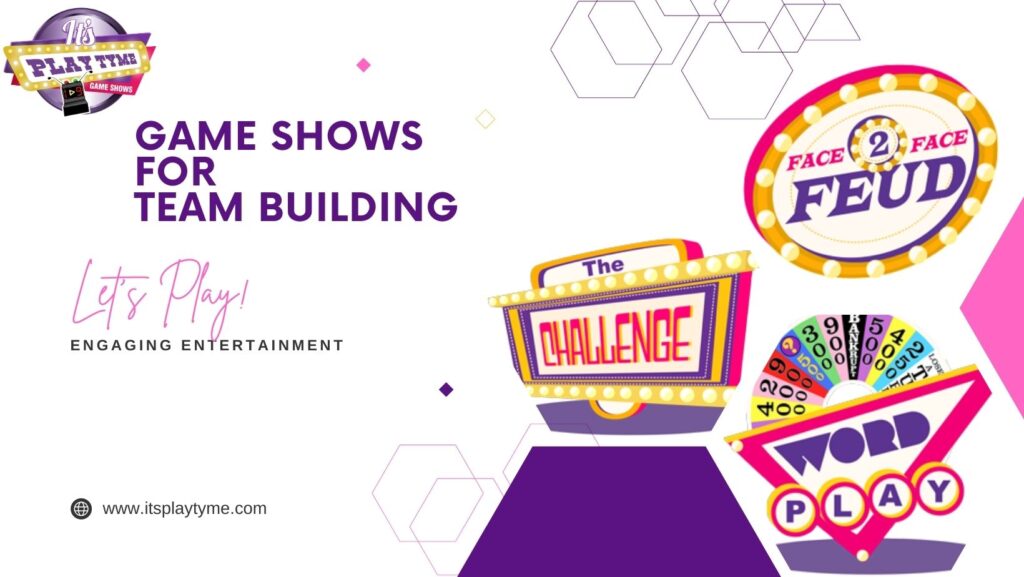
Game Shows for Team Building
Conclusion
In conclusion, it is crucial to challenge the negative perceptions and misconceptions surrounding teamwork games and activities, as they offer numerous benefits for teams in a professional setting.
By improving teamwork, fostering communication, and enhancing productivity, these activities can help create a more collaborative and effective work environment.
To make the most of these team building experiences, it is important to overcome the potential challenges that may arise during these activities.
Strategies for overcoming these challenges may include setting clear expectations, establishing trust among team members, and emphasizing the importance of effective communication.
Furthermore, it is important to recognize that traditional team building activities may not resonate with everyone.
In lieu of traditional activities, unconventional team building experiences such as ice-breakers, DJ sessions, and personality tests may be a fresh and engaging approach for fostering teamwork.
You should remember that teamwork is a critical component of success in the workplace, and team building activities can help your team develop and maintain the skills necessary for effective collaboration.
With a redefined understanding of teamwork and an emphasis on its many benefits, you can create a more productive and engaging work environment for yourself and your colleagues.
Planning a Team Builder?
![]()
Book a live game show experience today!
Contact us for further details.
For Immediate assistance by text – 917-670-4689
No deposit required.
We plan and facilitate all activities.
